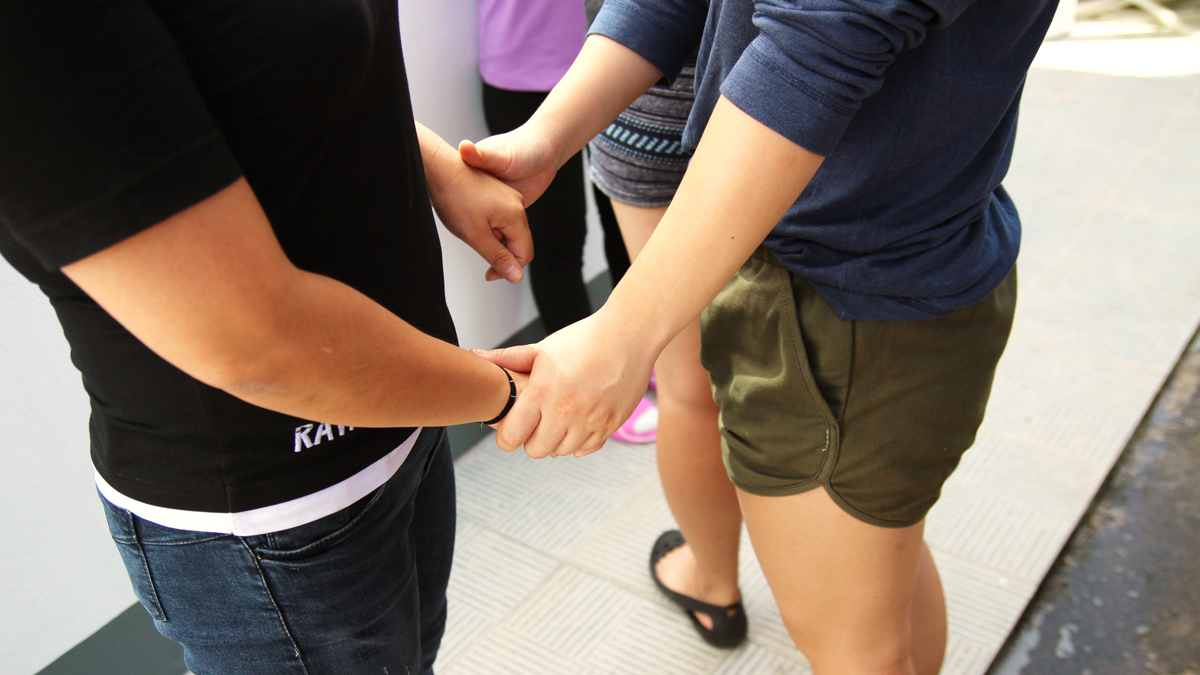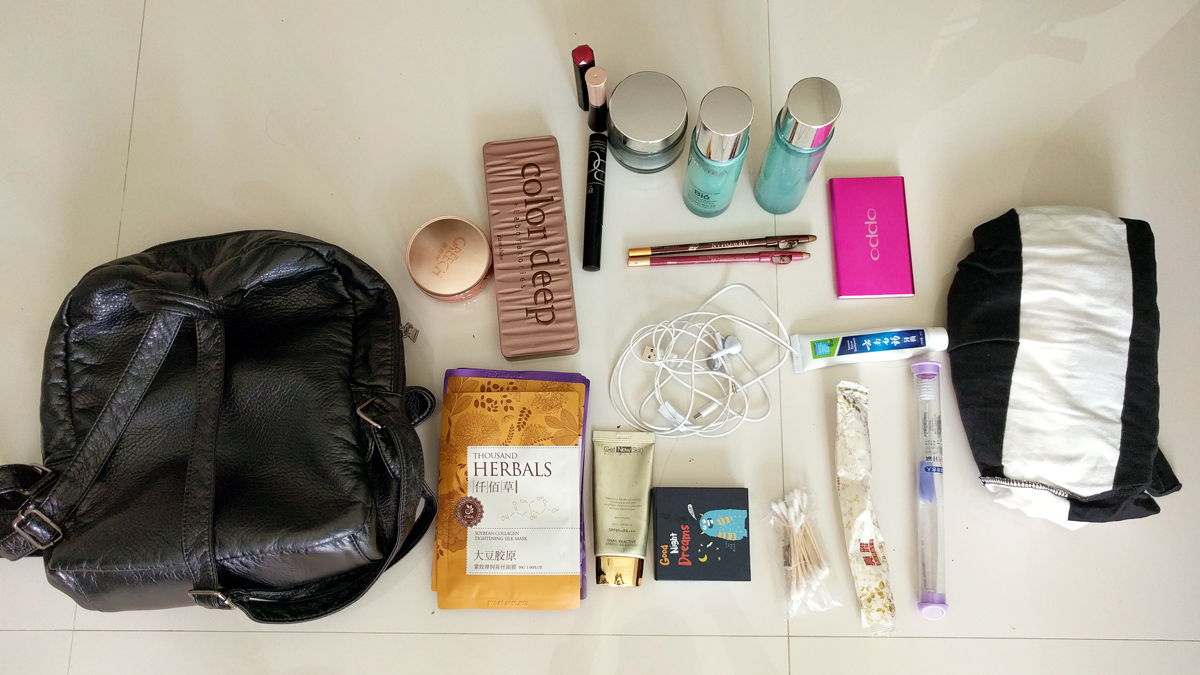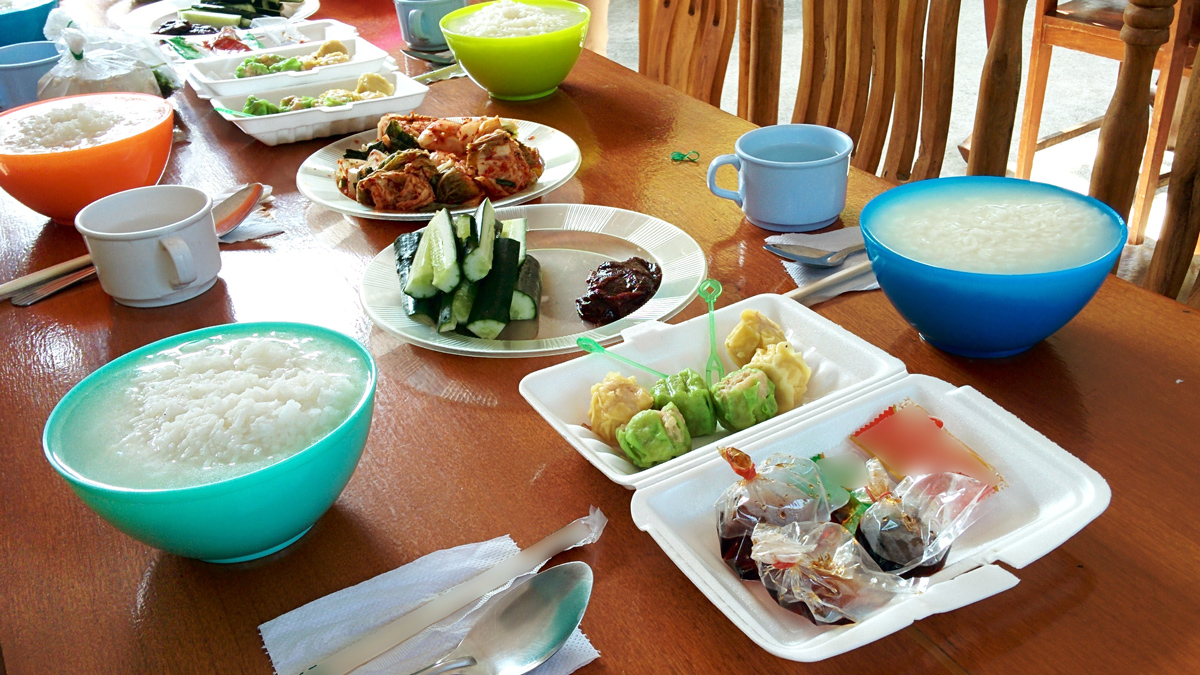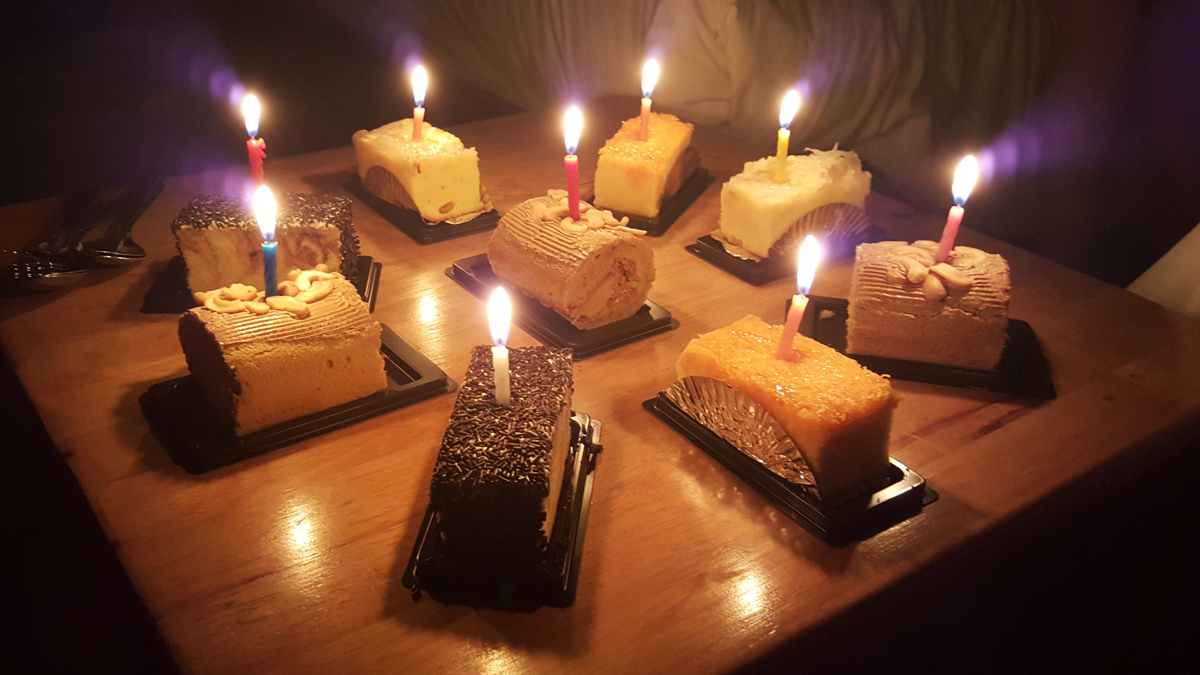The Red Box: Misunderstandings and Stereotypes about North Koreans
For North Korean refugees, resettling in a new society comes with many challenges. One of these challenges is overcoming the stereotypes about North Korea and the North Korean people.
In the latest episode of The Red Box, our North Korean friends and 2019 LiNK Advocacy Fellows talk about the struggle of of facing stereotypes after resettling in South Korea.
Watch as Jeongyol, Joy, Dasom, and Ilhyeok answer your questions in The Red Box Series!
Read the transcript of this episode below!
All: Welcome to the Red Box!
Jeongyol:
Are there any misunderstandings about the North Korean people that make you feel uncomfortable?
Ilhyeok: Misunderstandings?
Joy: When I first came to South Korea, was working part-time at a convenience store. I was still very young and had a very heavy North Korean accent.
In South Korea, when a customer enters the part-time employees don't really greet them. But I used to greet the customers standing and say "Welcome!" so people would ask me where I'm from.
I'd tell them that I'm from North Korea. They'd say "oh really?" After they get their stuff and put them on the counter, they'd asked me if I ever had jjajangmyun or pork in North Korea? They'd ask me these types of questions. Some people ask because they don't know but sometimes they ask questions that insinuate that we were all so poor in North Korea. Not everyone in North Korea is like that. There's people who live well too
Jeongyol: If someone asked me that, I’d tell them I might've lived a wealthier life there [in North Korea].
Joy: So those types of questions made me feel a little uncomfortable.
Jeongyol: A lot of people think like that.
Dasom: People think that all North Koreans are poor, ignorant, and uneducated. People have told me that even though I must have starved and lived poorly in North Korea, I don't look the part.
Maybe some people did or didn't have enough food to eat. There are poor people and there are rich people too. Every country is the same — it’s the same in South Korea too. There are rich, poor, and homeless people in South Korea too. I don't think it's right to judge someone like that. It made me feel very uncomfortable
Jeongyol: When I was in high school, there was a soccer match between North Korea and South Korea. But all of a sudden they asked me which team I'm cheering for. So I was startled by the question.
Should I say I'm cheering for North Korea or South Korea? What's my identity?
Even though I'm living in South Korea as a South Korean citizen, they didn't recognize the fact that I'm also South Korean. That we were the same people.
So at the time I answered, "I'm not cheering for either team. I don't care who wins. I’m just watching the game for fun.” It went over smoothly but afterward I kept thinking about it. But now that I think about it…It wasn't my choice to be born in North Korea.
Dasom: Right
Jeongyol: I could've been born in the U.S. but somehow I was born in North Korea.
Anyone could've been born in North Korea.
It's not anyone's fault. So from that moment on, I became confident. I am just who I am.
Ilhyeok: I have this older friend from China. During holidays like in January, he'd always ask me if I am visiting my hometown. Whenever he asks me that question, I want to be able to tell him that I'm am going [home] but I can't because I can't go back so I just don’t answer him. When he asked me if I'm going home, I just wished that I could return home one day.
It's heartbreaking not being able to go home.
During Chuseok and New Year's Day, those two holidays are when I miss home the most.
Joy: One uncomfortable question for me was when I was in school or met people was when they asked me why there's no riot or uprising in North Korea. Sometimes people ask because they really don't know but sometimes they insinuate that we're cowards.
And with that viewpoint, they ask why we won't revolt against the government. I try to explain but they still insist and say, ”But you guys still should have done something.” That makes me a little sad.
In North Korea, there's a system of monitoring each other. So if one person says something bad, they'd get reported right away and taken.
Jeongyol: In South Korea there were a lot of civil riots so they ask why we didn't do anything in North Korea.
Joy: But it's a very different situation.
Jeongyol: The system doesn't allow it.
Dasom:
What also made me uncomfortable was if I did something wrong, people would blame it because I'm North Korean.
They say things like, “It's because she's North Korean.” That made me upset. Other people say bad things and make mistakes too. But because of one mistake they say all North Koreans are like that and that I wouldn't know things or be able to do things because I'm from North Korea.
I hated hearing that so I wouldn't tell anyone that I was from North Korea.
Women’s History Month: Honoring the Bravery of North Korean Women
By: Jennifer Kim
Jennifer* is Liberty in North Korea’s Field Manager. Over the years, she’s carefully stewarded our secret rescue routes and helped countless North Korean refugees reach safety and freedom.
Approximately 70% of North Korean defectors are women. Throughout their journey, they face unimaginable challenges, including human trafficking, confinement, and sexual violence.
For Women’s History Month this year, we asked Jennifer to share her experiences supporting North Korean women who have made the brave decision to escape, and bring light to the stories of real people behind the numbers and statistics.

A Transformative First Mission
When I first began this line of work, I was filled with both excitement and anxiety. “Will I be able to connect well with these people?” “Will the field be too dangerous?” Even in my position as a staff member, there were times when the situations we encountered felt riskier because I was a woman.
On my first mission, the group we brought to safety were all women. From their small requests, like asking for sanitary pads, to moments where they cautiously shared their harrowing experiences of human trafficking in China, I found that we could connect on a deeper level because I was also a woman. I realized my role wasn’t just to be a staff member, but to stand by these people as they needed me, as a fellow woman. From then on, the fear I had initially felt about this work transformed into conviction.
North Korean Women At the Forefront of Resistance and Survival
After meeting many North Korean women defectors, I’ve come to learn that there are unique challenges and experiences that only they face. Women in North Korea are not as restricted to job assignments as men, so they’re the ones actively engaged in informal economic activities. They’re running their own black-market businesses and trading smuggled goods, shifting economic power from the regime into the hands of the ordinary people.
Women also make up the majority of North Korean defectors at over 70%. In freedom, they’re leading advocacy efforts and raising awareness for this issue.
I've come to think that perhaps women in North Korean society were the first and most desperate to stand up in resistance.

At the same time, the reality is that women are more vulnerable to gender violence and crime. The moment they cross the North Korean border and set foot on Chinese soil, their precarious legal status and the fact that they are women become risk factors that can lead to human trafficking, sexual exploitation, and forced prostitution. If these dangerous situations lead to pregnancy and childbirth, women often remain in China for years, even decades, weighed down by the conflicting emotions of their longing for freedom and their maternal instincts.
All of the women I met during my first rescue mission were survivors of being trafficked into forced marriages. While there are some cases where these women meet kind families and live in a relatively less dangerous environment, most have to endure difficult lives. One woman who we rescued in 2024 said that in the early stages of her life in China, she was confined and tied up in a single room by the man who bought her. Others had to do forced labor in one of China’s many factories.
Not a News Story, But a Person’s Story
About ten years ago, I watched a video of a woman my age testifying about the hardships and sexual violence she experienced during her defection from North Korea. As a South Korean, I couldn't believe that such things were happening just across the border. Shocked and ashamed of my indifference, I cried for a long time, then resolved to do something.
North Korea used to be something I only saw and heard about through a TV screen. Now those distant news stories have become the personal experiences of the North Korean mothers and friends I’ve met in the field.
At first, I simply wanted to help as best I could. But as time went on and I met more North Koreans, my perspective gradually changed. Now, I feel like I'm not so much ‘helping’ as I am meeting incredible superwomen who have overcome tremendous adversity.
My role is to constantly remind them of their resilience and potential, so they don't forget it themselves.

“This is My First Time Being Treated Like a Queen”
After a successful mission, our team ensures our newly arrived North Korean friends have a proper meal, get some rest, and receive basic necessities. On one occasion, one woman told me, “This is the first time in my life that I have been treated like a queen.”
She had just reached freedom after ten years in a forced marriage to a Chinese man. Her words resonated with me deeply. I realized once again that our work isn't simply about helping people achieve physical freedom; it's about restoring a person's forgotten dignity.
That woman has since resettled in South Korea and runs a small shop. She’s continued to stay in contact with LiNK, sharing updates about her life. One day, she shyly announced her marriage. She’s starting a new chapter with a person she chose and wanted.

Walking Together In Solidarity
Through the friendships I’ve made and stories I’ve witnessed in the field, my connection to this issue has deepened over time. These women aren’t just “nameless” North Koreans, but people like us, living their daily lives; someone’s daughter, sister, or mother. I didn’t set out to do this work for over a decade. But day by day, hearing each story, meeting each person, and holding their hands has naturally led me down this path.
Listen to their stories, and I believe that you too will encounter a heart for the North Korean people.
– Jennifer Kim, LiNK Field Manager
*Jennifer is a pseudonym used to protect our field manager’s identity and avoid compromising this work.

Help North Koreans Win Their Freedom
From inside the country to on the global stage, North Korean women are driving change on this issue. Driven by necessity, desire to care for their loved ones, and aspirations to forge their own path in this world, their pursuit of freedom is both intentional and instinctive.
Liberty in North Korea doesn't just extend a helping hand to North Korean refugees—we’re cultivating the next generation of North Korean leaders, entrepreneurs, and advocates, and doing this work alongside them.
Become a monthly donor today at $20 per month to help more North Koreans reach safety and gain full authorship of their lives in freedom.




